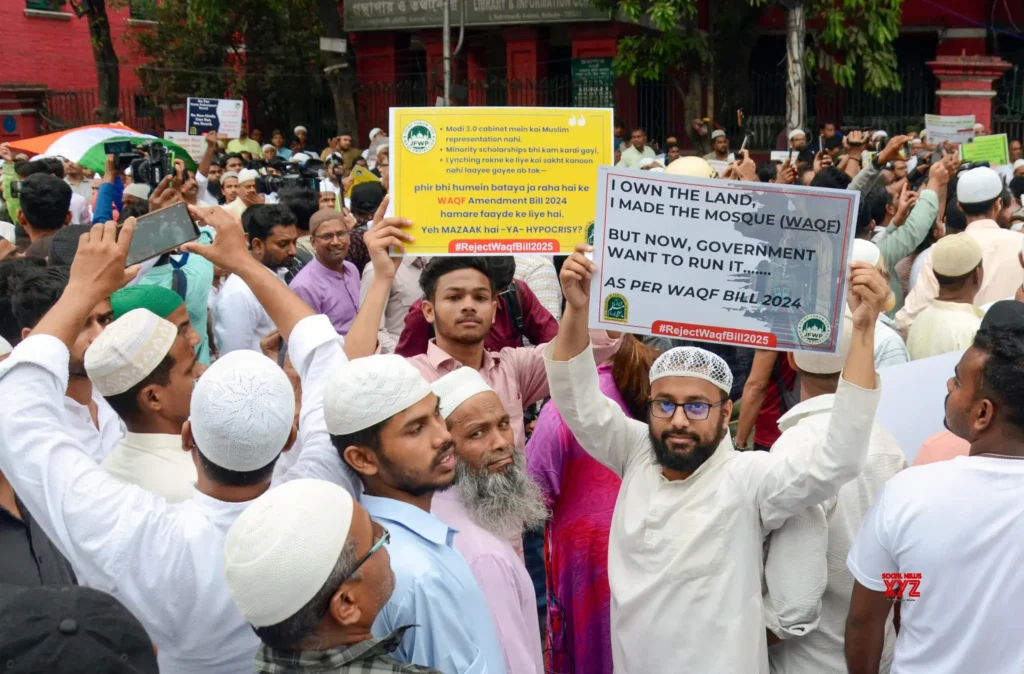Today in Politics: Waqf hearing continues in SC, with possibility of stay on parts of Act

Supreme Court Reviews Key Parts of Waqf (Amendment) Act, 2025
The Supreme Court of India resumed hearings on a set of petitions that question the legality of the Waqf (Amendment) Act, 2025. President Droupadi Murmu approved the law on April 5, triggering nationwide political and legal concerns.
Why the Law Faces Scrutiny
The Court is focusing on three parts of the amended law. Each has raised serious concerns from legal experts and religious organizations.
1. Waqf-by-User Clause
This provision allows land to be declared as Waqf if it has long been used for religious activities. However, experts argue this rule could disrupt many properties already settled by courts. As a result, the Court fears it may create widespread confusion and conflict.
2. Non-Muslim Members in Waqf Boards
For the first time, the law allows non-Muslims to serve on Waqf boards. While the government says this promotes inclusivity, critics believe it threatens the independence of Muslim charitable bodies. Moreover, the bench asked whether this change respects the community’s right to manage its religious affairs.
3. Role of District Collectors in Land Disputes
The Act gives district collectors the power to decide if a disputed property belongs to Waqf. Legal experts say this move bypasses due process. The judges also expressed concern that it might lead to unfair decisions and undermine judicial authority.
Court Considers Temporary Relief
During the session, the bench suggested it may pause the implementation of some provisions. These sections, according to the judges, could cause irreversible harm. Solicitor General Tushar Mehta requested extra time to present the government’s full position. In response, the Court adjourned the hearing until April 17.
Widespread Political Backlash
Opposition parties have strongly opposed the Act. Congress MP Mohammad Jawed and AIMIM leader Asaduddin Owaisi have filed petitions arguing that it violates the fundamental rights of Muslims. Furthermore, protests broke out in states like West Bengal and Tripura. In several areas, the unrest turned violent, resulting in injuries and property damage.
What Lies Ahead
The Supreme Court’s verdict will shape how the Waqf (Amendment) Act moves forward. If the Court issues a stay, it could pause the law’s enforcement and delay changes to Waqf property rules. Without a doubt, this ruling will serve as a milestone in matters related to religious rights and property governance.






